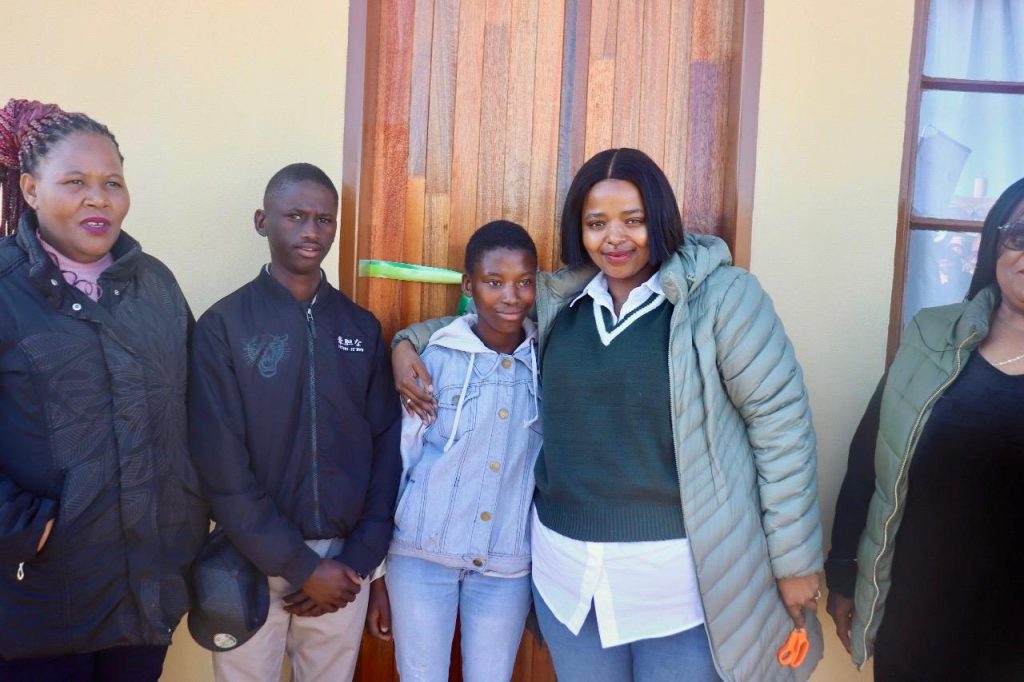
In the heart of Sinakho Zwelethemba, just outside the quiet town of Dordrecht, the air was filled with celebration, gratitude, and a deep sense of hope. Among the crowd stood 19-year-old Luphumlo Boniswa – emotional, proud, and filled with relief as he accepted the keys to a new home from the Eastern Cape Department of Human Settlements. The house will now shelter him and his two younger siblings, a beacon of stability after years of uncertainty.
Luphumlo is one of many young South Africans forced to grow up too soon. Following the death of both their mother and grandmother, he stepped into the role of caregiver, ensuring his siblings had food, safety, and a semblance of normal life, even as they lived in crumbling mud structures barely fit for human habitation.
But this week, things changed.
“I am so emotional and grateful at the same time,” he said, holding back tears. “I now have a place I can truly call home. This house means everything to us. We feel safe, and we have a new beginning.”
The Boniswa family is one of 30 beneficiaries of the Sinakho Zwelethemba 289 Human Settlements Project, a government initiative under the Emalahleni Local Municipality designed to provide secure housing to the most vulnerable, particularly child- and youth-headed households.
Across the Chris Hani District, a similar story of resilience emerged. In Cofimvaba, 26-year-old Thokozile Vumazonke stood before her newly built home, the pain of the past giving way to cautious joy. Orphaned at a young age, Thokozile had weathered hardship after hardship, most recently losing her home to a natural disaster. Now, as a beneficiary of the Chris Hani Destitute 1300 Project, she has a place to rebuild her life.
“This home means stability, safety, and the promise of a better tomorrow,” Thokozile said, her voice strong with the quiet power of survival. “After everything, I can breathe again.”
The handover ceremonies were led by MEC for Human Settlements, Ms. Siphokazi Lusithi, who emphasized that the initiative goes far beyond bricks and mortar.
“We are not merely handing over houses,” said Lusithi. “We are restoring dignity and creating a legacy for generations to come. Young people like Luphumlo, who have taken on the role of caregiver under difficult circumstances, deserve the full support of their government and community.”
These homes represent more than just shelter, they are lifelines. In the face of overwhelming adversity, youth like Luphumlo and Thokozile have demonstrated extraordinary resilience. The provincial government’s support ensures they are no longer alone in their struggles.
As South Africa continues to celebrate and reflect on the strength of its youth, these stories stand as powerful reminders of what can be achieved when compassion, policy, and action come together.
In the dusty streets of Sinakho Zwelethemba and the rural heart of Cofimvaba, the future is being rebuilt – one house, one family, and one brave young person at a time.
